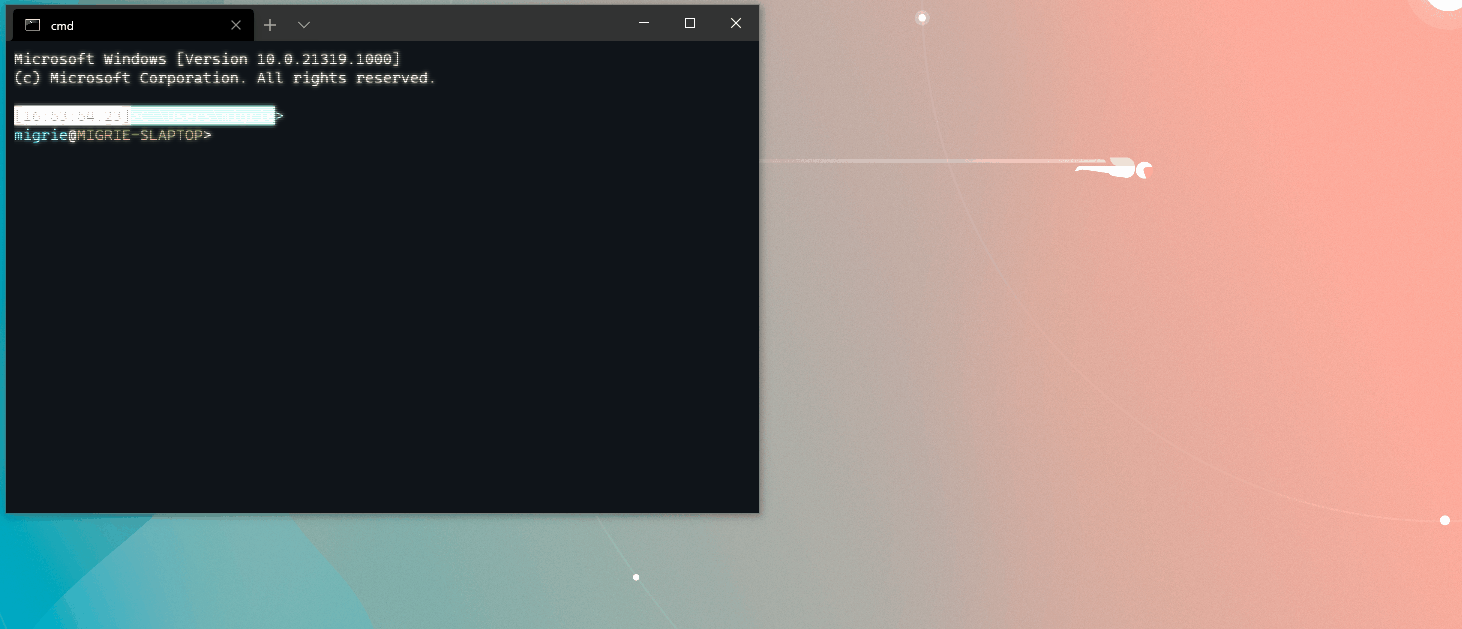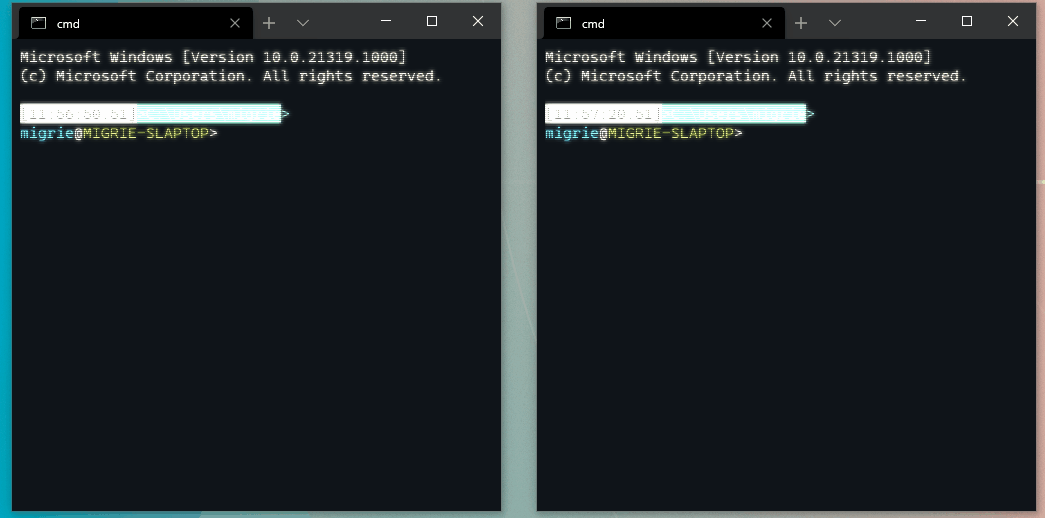## Summary of the Pull Request This is a follow up to #9300. Now that we have names on our windows, it would be nice to see who is named what. So this adds two actions: * `identifyWindow`: This action will pop up a little toast (#8592) displaying the name and ID of the window, and is bound by default.  * `identifyWindows`: This action will request that ALL windows pop up that toast. This is meant to feel like the "Identify" button on the Windows display settings. However, sometimes, it's wonky.  That's being tracked upstream on https://github.com/microsoft/microsoft-ui-xaml/issues/4382 Because it's so wonky, we won't bind that by default. Maybe if we get that fixed, then we'll change the default binding from `identifyWindow` to `identifyWindows` ## References ## PR Checklist * [x] Closes https://github.com/microsoft/terminal/projects/5#card-51431492 * [x] I work here * [x] Tests added/passed * [ ] Requires documentation to be updated ## Detailed Description of the Pull Request / Additional comments You may note that there are some macros to make interacting with lots and lots of actions easier. There's a lot of boilerplate whenever you need to make a new action, so I thought: "Can we make that easier?" Turns out you can make it a _LOT_ easier, but that work is still behind another PR after this one. Get excited
168 lines
5.9 KiB
C++
168 lines
5.9 KiB
C++
// Copyright (c) Microsoft Corporation.
|
|
// Licensed under the MIT license.
|
|
|
|
#include "pch.h"
|
|
#include "Peasant.h"
|
|
#include "CommandlineArgs.h"
|
|
#include "Peasant.g.cpp"
|
|
#include "../../types/inc/utils.hpp"
|
|
|
|
using namespace winrt;
|
|
using namespace winrt::Microsoft::Terminal;
|
|
using namespace winrt::Windows::Foundation;
|
|
using namespace ::Microsoft::Console;
|
|
|
|
namespace winrt::Microsoft::Terminal::Remoting::implementation
|
|
{
|
|
Peasant::Peasant() :
|
|
_ourPID{ GetCurrentProcessId() }
|
|
{
|
|
}
|
|
|
|
// This is a private constructor to be used in unit tests, where we don't
|
|
// want each Peasant to necessarily use the current PID.
|
|
Peasant::Peasant(const uint64_t testPID) :
|
|
_ourPID{ testPID }
|
|
{
|
|
}
|
|
|
|
void Peasant::AssignID(uint64_t id)
|
|
{
|
|
_id = id;
|
|
}
|
|
uint64_t Peasant::GetID()
|
|
{
|
|
return _id;
|
|
}
|
|
|
|
uint64_t Peasant::GetPID()
|
|
{
|
|
return _ourPID;
|
|
}
|
|
|
|
bool Peasant::ExecuteCommandline(const Remoting::CommandlineArgs& args)
|
|
{
|
|
// If this is the first set of args we were ever told about, stash them
|
|
// away. We'll need to get at them later, when we setup the startup
|
|
// actions for the window.
|
|
if (_initialArgs == nullptr)
|
|
{
|
|
_initialArgs = args;
|
|
}
|
|
|
|
TraceLoggingWrite(g_hRemotingProvider,
|
|
"Peasant_ExecuteCommandline",
|
|
TraceLoggingUInt64(GetID(), "peasantID", "Our ID"),
|
|
TraceLoggingWideString(args.CurrentDirectory().c_str(), "directory", "the provided cwd"),
|
|
TraceLoggingLevel(WINEVENT_LEVEL_VERBOSE));
|
|
|
|
// Raise an event with these args. The AppHost will listen for this
|
|
// event to know when to take these args and dispatch them to a
|
|
// currently-running window.
|
|
_ExecuteCommandlineRequestedHandlers(*this, args);
|
|
|
|
return true;
|
|
}
|
|
|
|
Remoting::CommandlineArgs Peasant::InitialArgs()
|
|
{
|
|
return _initialArgs;
|
|
}
|
|
|
|
void Peasant::ActivateWindow(const Remoting::WindowActivatedArgs& args)
|
|
{
|
|
// TODO: projects/5 - somehow, pass an identifier for the current
|
|
// desktop into this method. The Peasant shouldn't need to be able to
|
|
// figure it out, but it will need to report it to the monarch.
|
|
|
|
// Store these new args as our last activated state. If a new monarch
|
|
// comes looking, we can use this info to tell them when we were last
|
|
// activated.
|
|
_lastActivatedArgs = args;
|
|
|
|
bool successfullyNotified = false;
|
|
// Raise our WindowActivated event, to let the monarch know we've been
|
|
// activated.
|
|
try
|
|
{
|
|
// Try/catch this, because the other side of this event is handled
|
|
// by the monarch. The monarch might have died. If they have, this
|
|
// will throw an exception. Just eat it, the election thread will
|
|
// handle hooking up the new one.
|
|
_WindowActivatedHandlers(*this, args);
|
|
successfullyNotified = true;
|
|
}
|
|
catch (...)
|
|
{
|
|
LOG_CAUGHT_EXCEPTION();
|
|
}
|
|
|
|
TraceLoggingWrite(g_hRemotingProvider,
|
|
"Peasant_ActivateWindow",
|
|
TraceLoggingUInt64(GetID(), "peasantID", "Our ID"),
|
|
TraceLoggingBoolean(successfullyNotified, "successfullyNotified", "true if we successfully notified the monarch"),
|
|
TraceLoggingLevel(WINEVENT_LEVEL_VERBOSE));
|
|
}
|
|
|
|
// Method Description:
|
|
// - Retrieve the WindowActivatedArgs describing the last activation of this
|
|
// peasant. New monarchs can use this state to determine when we were last
|
|
// activated.
|
|
// Arguments:
|
|
// - <none>
|
|
// Return Value:
|
|
// - a WindowActivatedArgs with info about when and where we were last activated.
|
|
Remoting::WindowActivatedArgs Peasant::GetLastActivatedArgs()
|
|
{
|
|
return _lastActivatedArgs;
|
|
}
|
|
|
|
// Method Description:
|
|
// - Tell this window to display it's window ID. We'll raise a
|
|
// DisplayWindowIdRequested event, which will get handled in the AppHost,
|
|
// and used to tell the app to display the ID toast.
|
|
// Arguments:
|
|
// - <none>
|
|
// Return Value:
|
|
// - <none>
|
|
void Peasant::DisplayWindowId()
|
|
{
|
|
// Not worried about try/catching this. The handler is in AppHost, which
|
|
// is in-proc for us.
|
|
_DisplayWindowIdRequestedHandlers(*this, nullptr);
|
|
}
|
|
|
|
// Method Description:
|
|
// - Raises an event to ask that all windows be identified. This will come
|
|
// back to us when the Monarch handles the event and calls our
|
|
// DisplayWindowId method.
|
|
// Arguments:
|
|
// - <none>
|
|
// Return Value:
|
|
// - <none>
|
|
void Peasant::RequestIdentifyWindows()
|
|
{
|
|
bool successfullyNotified = false;
|
|
|
|
try
|
|
{
|
|
// Try/catch this, because the other side of this event is handled
|
|
// by the monarch. The monarch might have died. If they have, this
|
|
// will throw an exception. Just eat it, the election thread will
|
|
// handle hooking up the new one.
|
|
_IdentifyWindowsRequestedHandlers(*this, nullptr);
|
|
successfullyNotified = true;
|
|
}
|
|
catch (...)
|
|
{
|
|
LOG_CAUGHT_EXCEPTION();
|
|
}
|
|
TraceLoggingWrite(g_hRemotingProvider,
|
|
"Peasant_RequestIdentifyWindows",
|
|
TraceLoggingUInt64(GetID(), "peasantID", "Our ID"),
|
|
TraceLoggingBoolean(successfullyNotified, "successfullyNotified", "true if we successfully notified the monarch"),
|
|
TraceLoggingLevel(WINEVENT_LEVEL_VERBOSE));
|
|
}
|
|
|
|
}
|